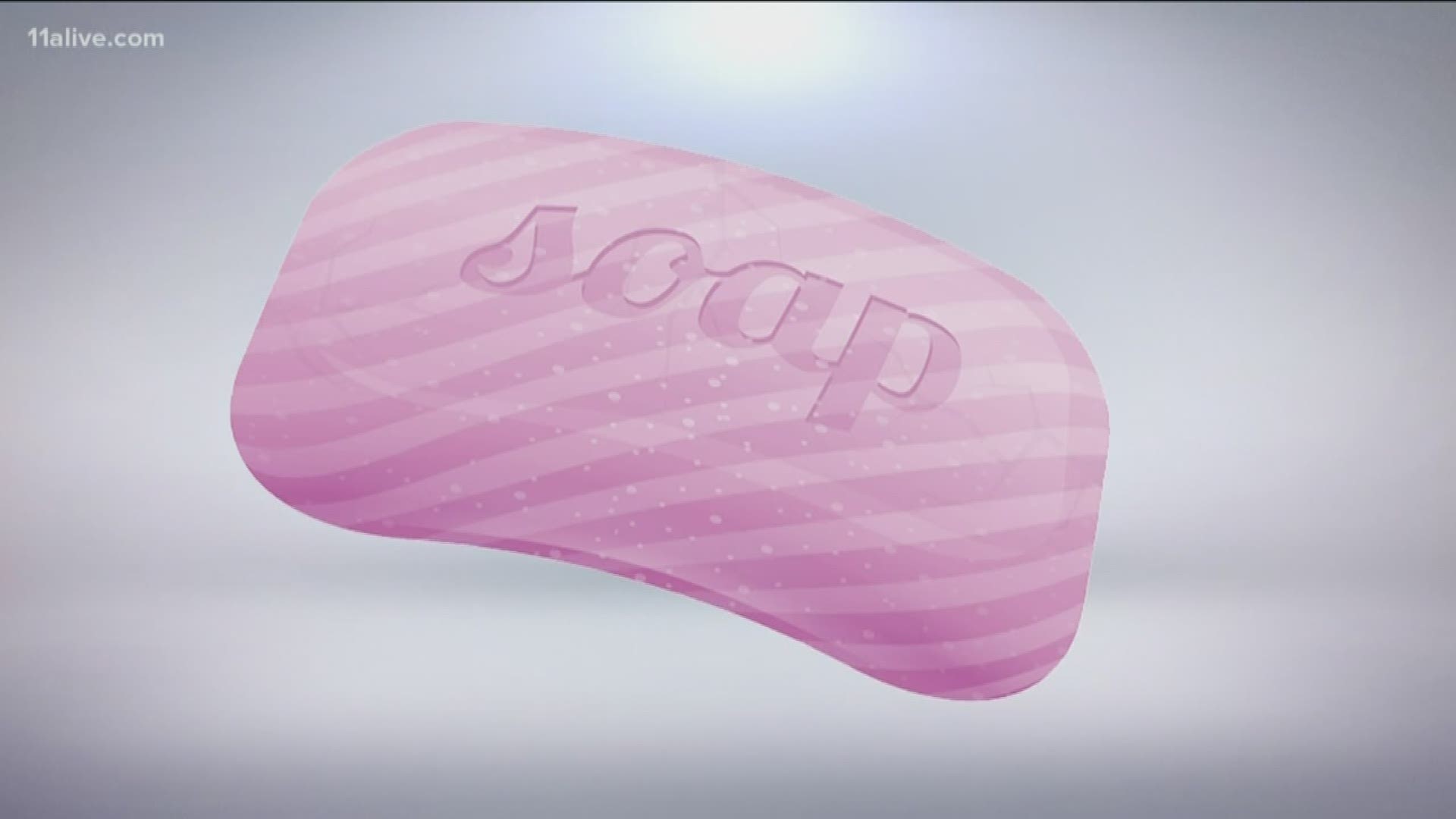ATLANTA — ATLANTA – Washing your hands is a vital element in eliminating the spread of the coronavirus, leading some to wonder about the date on their package of soap.
You expect to see an expiration date on items like meat and milk, but soap?
Here’s why you might see what appears to be an expiration date on soap products.
The folks at Dial soap tell us the date on their products indicates the shelf life, which is slightly different from an expiration date.
“What we have is shelf life for three years,” Dial’s Consumer Affairs division tells us in an email. “That means you can still use the product after shelf life, but we can no longer guarantee the efficacy of the product.”
Dermatologists tell us there are several reasons why a soap may not be as effective over time.
“Soaps that are made with animal fats can spoil,” says Dr. Carrie Kovarik, Associate Professor of Medicine at the University of Pennsylvania. “Soaps that have fragrances can break down over time.”
“Many fragranced soaps have oils which, over time, will be changed by oxygen in the air,” says Dr. Adam Friedman, Professor of Dermatology at George Washington’s School of Medicine and Health Sciences. “Some of the ingredients are there to help protect the other ingredients, but they can only work for so long.”
It’s up to the manufacturers to determine the shelf life and the generally accepted time for soap is three years.
“If the choice is expired soap vs. no soap, I would prefer the expired soap,” says Dr. Daniela Kroshinsky, Associate Professor of Dermatology at Harvard Medical School. “The physical ability to cleanse is likely still there even if the specific antibacterial agents are no longer active.”
Dr. Friedman wonders why anyone would have three-year-old soap.
“How does a bottle of soap last that long? Answer: it’s not being used,” says Friedman.
LATEST CORONAVIRUS HEADLINES:

